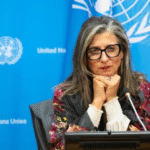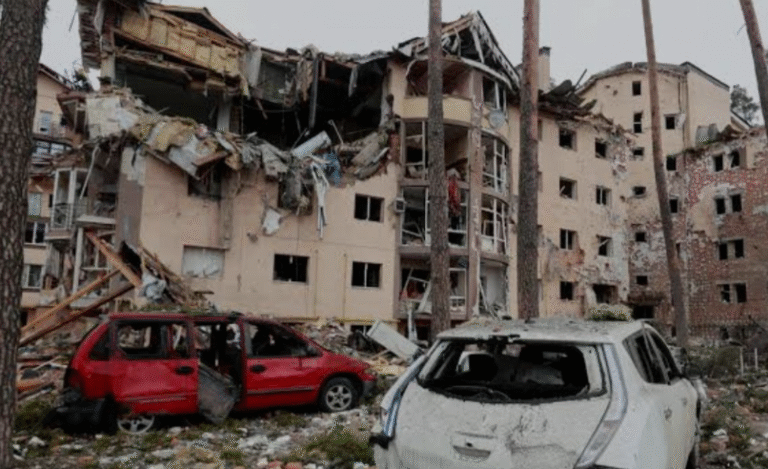
Ending the Ukraine war.
The ongoing war in Ukraine has grabbed the world’s attention like nothing else. No matter where you are, the conflict impacts us all. Civilians face unimaginable hardship, the global economy trembles, and international stability hangs in the balance. It’s clear that ending this war cannot wait. We need smart diplomacy, strong cooperation, and real commitment from everyone involved. Finding peace is hard, but not impossible, if we work together with clear goals and honest effort.
Ukraine and Russia’s story has deep roots. Ukraine used to be part of the Soviet Union, gaining independence in 1991. Over the years, tensions grew as Ukraine moved closer to western nations and sought NATO membership. Russia saw this as a threat to its influence and security. When Russia annexed Crimea in 2014, it marked a turning point. Following that, fighting erupted in eastern Ukraine, setting the stage for a full-scale war in 2022. Now, in 2025, Russia continues to pound Ukraine. The cost to Russia is enormous, but Putin the Butcher does not care, nobody is important in his eyes. Russian men are just meat fodder. Putin lives in his imaginary schizophrenic world, everyone is against him except his pals, Kim Jun Un, Xi et Khamenei.
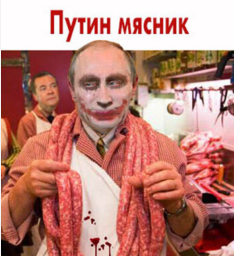
Vladimir Putin, chop-chop business.
Recently, the conflict has shifted with changing territorial control. Kyiv might hold some areas, but fierce battles continue across eastern parts. The war has created a massive humanitarian crisis, with millions forced to flee their homes. Civilians suffer from shelling, loss of loved ones, and destroyed communities. Urban infrastructure, hospitals, and schools lie in ruins, leaving people more vulnerable than ever.
Countries worldwide responded by imposing economic sanctions on Russia. These hit Moscow’s economy hard but also created ripple effects in global markets. International organizations like the United Nations and NATO have called for peace and offered support. Still, their efforts often face obstacles like conflicting interests and diplomatic disagreements.
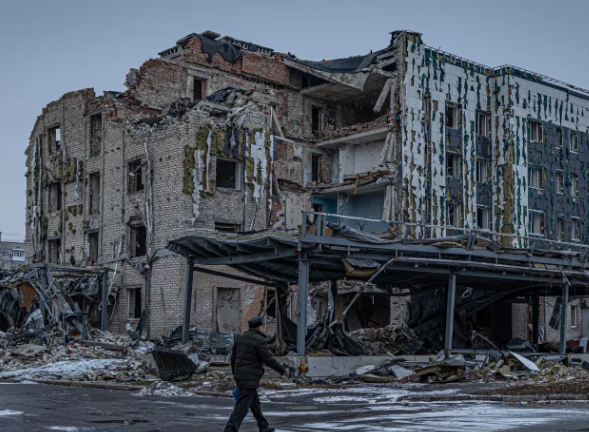
Destruction.
History shows many conflicts find peace through honest negotiations. In Ukraine, initiatives like the Minsk agreements tried to encourage talks, but they fell short. Now, new diplomatic efforts focus on building trust and finding common ground. But President Trump failed like others did.
The main players include Ukraine, Russia, Western nations, and international bodies like the UN. Each has a part to play. Ukraine’s sovereignty and security concerns must stay front and center. The key is creating agreements that satisfy these needs while preventing future conflicts. Non-governmental groups and regional powers also have a role in supporting peace.
Trust and Putin remain the biggest hurdles. Both sides require assurances that peace will be lasting and secure. Major powers, especially the US and China, have their own interests, complicating negotiations. It’s like trying to fix a broken machine with parts from competing factories. Success depends on patience, honest dialogue, and a focus on common goals.
An instant ceasefire must be based on clear conditions — a halt to all fighting, withdrawal of heavy weapons, and access to humanitarian aid. Countries like Norway and Switzerland have helped broker temporary pauses in other conflicts. These efforts show that quick, well-organized ceasefires are possible if all parties agree.
To build trust, both sides can agree to demilitarized zones or safe passages for civilians. Humanitarian corridors allow aid delivery and the safe return of refugees. Civilian zones reduce the risk of accidental escalation. These steps act as breathing space in a war that has no winners.
Sending peacekeepers can stabilize a fragile ceasefire. UN missions in places like Kosovo and Sierra Leone show how troops can supervise peace agreements. The challenge: ensuring they have enough resources and clear mandates. Another problem is the length of the front lines. It would require an incredible number of resources, material, human, and funding. When well-led, peacekeeping teams can prevent conflicts from reigniting. But with Russia, is it really possible? As long as Putin remains in power, nothing will happen. This is a new 1939 situation, where most try to appease the dictator, and we know here it led.
Once fighting stops, rebuilding Ukraine is essential. International investors can repair bridges, roads, and hospitals. Giving Ukraine economic incentives encourages peace. Aid programs can also help local businesses recover, creating jobs and stability.
Supporting displaced people involves providing food, shelter, and legal help. Countries around the world have stepped up with donations and programs. Long-term success depends on integrating refugees back into society safely and offering opportunities for a better future.
To rebuild trust, justice must come first. War crimes and human rights abuses must be investigated and prosecuted. Truth and justice heal wounds and create a basis for reconciliation. Without accountability, true peace remains out of reach. Putin must be tried and punished for what he unleashed across Ukraine.
Ukraine needs a strong, transparent government that upholds democracy. Reforms should aim at reducing corruption and enhancing national sovereignty. International experts can offer guidance, but Ukraine’s leaders must drive this process.
NATO and European countries should offer concrete security guarantees to Ukraine. Confidence among neighbors helps reduce fears that new conflicts will flare up. Regular dialogue and confidence-building measures are key.
Peace is more than stopping fighting — it’s about healing wounds. Local projects and community dialogues can bridge divides. Education campaigns help promote understanding, tolerance, and shared goals for Ukraine’s future.
Ending the war in Ukraine requires a mix of smart diplomacy, firm commitment, and ongoing support. Only through a combined effort can we bring lasting peace. Time is short, but hope isn’t lost. We all have a role in pushing for dialogue, justice, and rebuilding. The future depends on the choices we make today. Global solidarity and active engagement are the keys to a peaceful, stable Ukraine and a safer world.
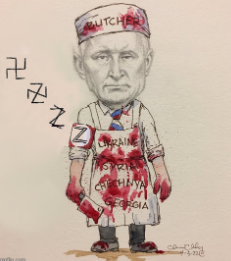
Vladimir Putin at the office.
But President Trump needed to wake up while in Alaska. He didn’t; instead, Putin took the initiative and abandoned the US. It appears that President Trump has no idea who he is dealing with. Putin doesn’t care about elections; removing him would solve the issue because he is a lifelong tyrant. Instead of negotiating, Putin destroys his opponents. He is surrounded by folks who die from accidents and suicide in quite large numbers. It’s also crucial to remove the brutal butchers who are vying for Putin’s position. He is getting older. His hunger for blood is undoubtedly a sign of mental impairment. At some point, someone will have to make the choice. This is not an option to wait for Putin to pass away naturally.
Feodor Musci.
